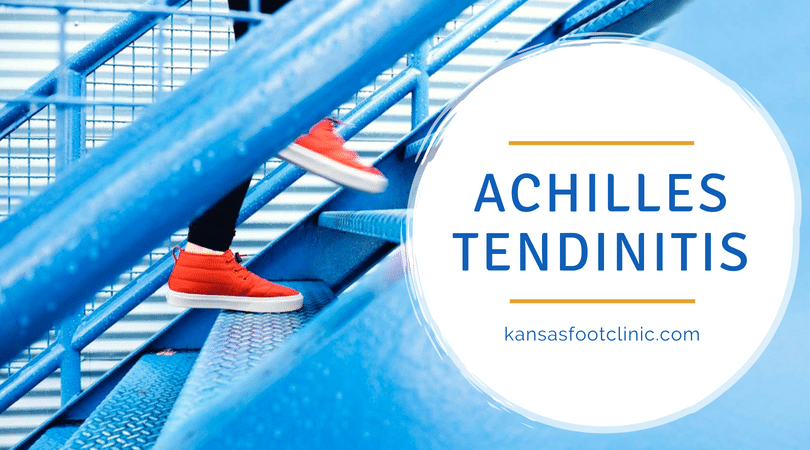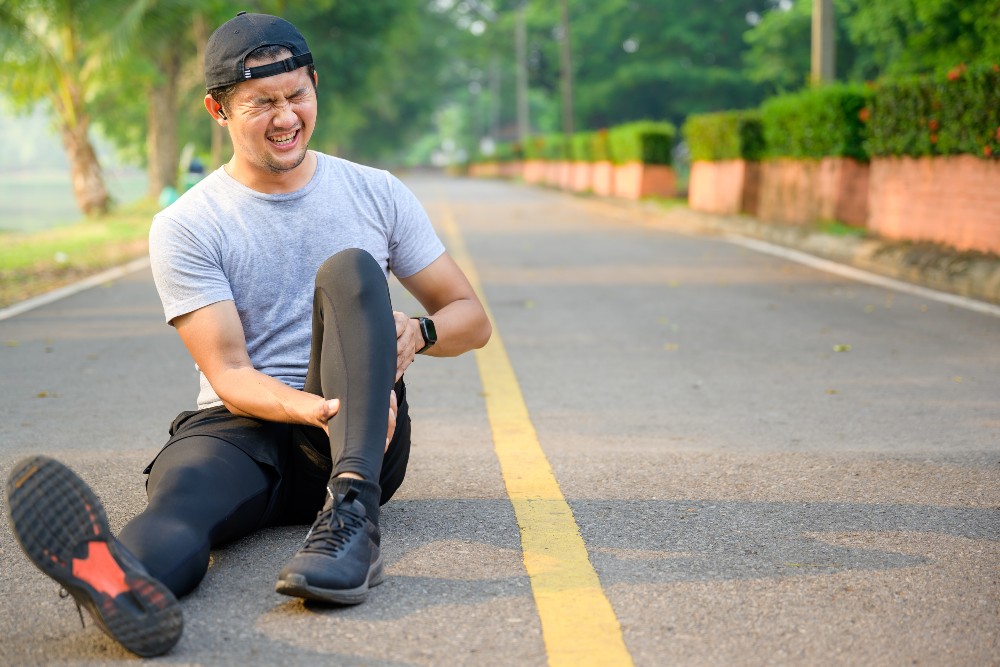Achilles Tendinitis
Out of the thousands of tendons you have in your body, the Achilles tendons—the “heel cords” located just behind the ankles—are the thickest and strongest. Yet they are among the most frequently injured.
Why is that?
Well, consider how much stress and strain they have to endure every day, especially if you’re an active individual, and you’ll begin to see why. Read on for more information about Achilles tendinitis, why it occurs, and what you can do when faced with it.
What is Achilles Tendinitis?
Achilles tendinitis is an injury that irritates, inflames, or otherwise damages the Achilles tendon. It’s attributed to cases of overuse, where the tendon has endured large amounts of repetitive stress over a prolonged period.
Who is Susceptible to Achilles Tendinitis?
Achilles tendinitis is a condition commonly observed in runners and other athletes who perform powerful jumping and sprinting movements regularly. Cases occur as the result of a breakdown in tendon fibers and are generally brought on by sudden increases in stress or a lack of time for proper recovery.
However, that’s not to say that Achilles tendinitis is solely reserved for athletes – the problem can also develop in non-athletes who may not be as active, but whose work puts repetitive strain on the Achilles tendon. This is often seen in professions that require a lot of standing, walking, or climbing stairs (e.g. teaching, construction work, factory work, etc.)
Factors that Contribute to or Worsen Cases of Achilles Tendinitis
Factors that can contribute to the development of Achilles tendinitis include poor choices of footwear, such as those that don’t fit or cushion properly, and bad foot structure such as flat feet.
Age and gender can also play a role in susceptibility to Achilles tendinitis. The condition is most commonly seen in middle-aged men, particularly those who have crossed the age of 40. This is due to the steady decline in collagen production that occurs with age, which makes tendons less elastic and more susceptible to damage.
Can I Treat Achilles Tendinitis at Home?
Treatment options for Achilles tendinitis are varied, and the one that’s best for your needs will depend on how serious your case is. In many mild-to-moderate cases of Achilles tendinitis, home treatments can provide effective relief.
These include…
Rest: Taking a break from running, sports, or other vigorous activities affords your Achilles tendon the chance to recuperate from strain and injury.
Reduced impact: Switching to low-impact exercises is a great way to reduce the development of symptoms of Achilles tendinitis while still getting physical activity for other parts of the body.
Pain and swelling control: Over-the-counter medications and/or ice packs can help manage the pain caused by your Achilles tendinitis as well as reduce the swelling it causes.
Elevation of the feet: Propping up your feet when you sit or recline is a great way to reduce swelling in the injured area.
Stretching: Gently stretching your calves each day can help to promote blood flow to your Achilles tendon and facilitate the healing process.
Footwear change: Changing your footwear is a simple yet straightforward way to reduce the strain on your Achilles tendon and prevent further injury.
If you’re experiencing severe pain or your Achilles tendon has suffered a complete rupture, you will need to seek medical attention. In these cases, more aggressive treatment options, such as surgery, may be necessary.
How can a Podiatrist Help Me with My Achilles Tendinitis?
As a highly skilled professional with extensive experience in the realm of foot care, our podiatrist is well suited to treat a wide range of conditions, including Achilles tendinitis. In cases where a patient’s condition has not improved after attempts to remediate it through home care, Dr. Timson can evaluate the problem and suggest more aggressive treatment options, such as the following.
MLS Laser Therapy
MLS laser therapy is a cutting-edge, FDA-approved treatment that uses specific wavelengths of light to stimulate and promote healing in damaged tissue. This therapy can help to reduce pain, inflammation, and swelling in the Achilles tendon, as well as improve blood flow and promote the regeneration of damaged tissue.
Injection Therapy
Injection therapy involves the administration of medication directly into the Achilles tendon to reduce pain and inflammation. The type of medication injected will depend on the specific needs of the patient.
Custom Orthotics
Custom orthotics are an extremely simple and accessible solution for those suffering from Achilles tendinitis. By assessing the foot and taking appropriate measurements, Dr. Timson can work with you to obtain custom orthotics that will help to realign your foot, redistribute your weight, and take the strain off of your Achilles tendon.
Surgery
Surgery to repair the tendon is only needed in rare circumstances where the tendon has been severely damaged and is not responding to other therapies. The vast majority of the time, conservative treatments will ultimately be effective.
Ready to Treat Your Achilles Tendinitis?
Looking for a solution to your pain? Trust the professionals at Kansas Foot Clinic. Our goal is simple: get you back to your active lifestyle as quickly as we can.
If you have Achilles tendinitis or would simply like to learn more about what we can do for you, please call our office today at (620) 241-3313 or contact us online.
© Community Foot Clinic of McPherson. All Rights Reserved.
Privacy Policy | Terms & Conditions
Web Design by CP Solutions
Marketed by VMD Services


